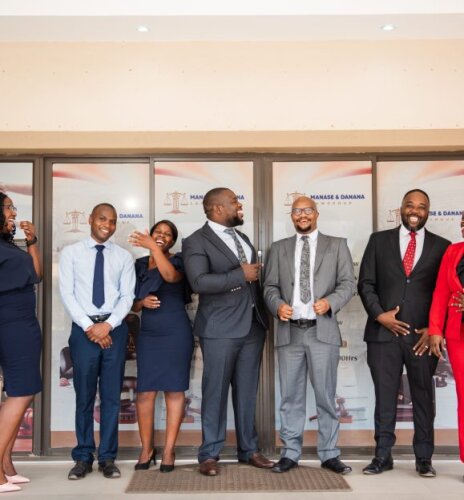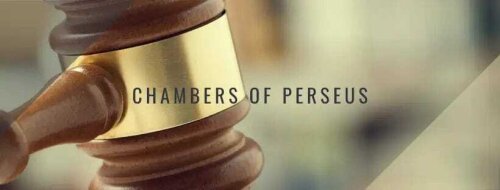Best Defamation Lawyers in Harare
Share your needs with us, get contacted by law firms.
Free. Takes 2 min.
List of the best lawyers in Harare, Zimbabwe
About Defamation Law in Harare, Zimbabwe
Defamation in Harare, Zimbabwe, is a legal issue that encompasses false statements made by one individual that harm the reputation of another. These statements can be made in writing, referred to as libel, or verbally, known as slander. The objective of defamation law is to protect individuals from unwarranted harm to their reputations while balancing freedom of speech. In Zimbabwe, the law distinguishes between civil and criminal defamation, with a focus on protecting personal reputation while still recognizing the importance of free expression.
Why You May Need a Lawyer
There are several situations where you might need to seek legal advice in defamation cases:
- If you've been publicly accused of something false affecting your reputation and livelihood.
- When you have evidence someone has spread damaging false information about you.
- If you're being sued for defamation and need defense against allegations of harming another's reputation.
- When you require guidance on how to proceed with claims of defamation, potentially including financial compensation.
- If you are a public figure and need help managing false information being spread about you online or in the media.
Local Laws Overview
The legal framework for defamation in Zimbabwe is primarily governed by common law principles alongside statutory provisions. Some of the critical aspects include:
- Defamatory statements must be false and made without lawful justification.
- The law includes both criminal sanctions and civil remedies, though criminal defamation laws have faced scrutiny internationally.
- Zimbabwean law recognizes defenses in defamation cases, such as truth, fair comment, and privilege. These can significantly affect the outcome of a legal dispute.
- Public figures often face a higher threshold to prove defamation, as they need to demonstrate actual malice or reckless disregard for the truth of the statements made against them.
- Defamation law in Zimbabwe has been under reforms to align with international human rights standards, particularly concerning freedom of expression.
Frequently Asked Questions
What constitutes defamation in Zimbabwe?
Defamation involves making false statements that unjustly damage an individual's reputation. It can be published or spoken and must be proved false and injurious to the person’s reputation.
Is defamation a civil or criminal offense in Zimbabwe?
Defamation can be both a civil and criminal offense. Civil suits allow the injured party to claim damages, while criminal charges involve state prosecution, though criminal defamation has faced criticism and calls for reform.
What is the difference between libel and slander in the context of Zimbabwean law?
Libel refers to defamatory statements made in a permanent form, such as writing or print, whereas slander involves transient forms, such as spoken words or gestures.
Can I sue someone for defamation on social media in Zimbabwe?
Yes, defamatory statements made on social media platforms can warrant a defamation lawsuit, provided they are false, damaging, and publicly accessible.
How long do I have to file a defamation lawsuit in Zimbabwe?
The limitation period for defamation claims in Zimbabwe is generally three years from the date the defamatory statement was made or published.
What defenses can be used in a defamation case?
Defenses include truth (the statement was true), fair comment (opinion on a matter of public interest), and privilege (statements made in certain protected contexts).
What remedies are available for defamation in Zimbabwe?
Remedies for defamation include damages (compensation for harm), retraction and apology from the defendant, and injunctive relief to prevent further publication.
Can an apology resolve a defamation case?
An apology can sometimes mitigate damages and lead to settlement, but it may not fully resolve a legal case if the plaintiff seeks additional remedies.
How does public figure status affect a defamation case?
Public figures must prove actual malice or that the statement was made with reckless disregard for its truth or falsity, making their cases more challenging.
Is there legal aid available for defamation cases in Harare?
Legal aid may be available through services provided by non-profit organizations or the Legal Aid Directorate under the Ministry of Justice, Legal, and Parliamentary Affairs for those who cannot afford private legal representation.
Additional Resources
Individuals seeking advice on defamation can consider the following resources:
- Zimbabwe Lawyers for Human Rights: Provides assistance and resources on various legal matters, including defamation.
- The Law Society of Zimbabwe: Offers directories and resources to find qualified legal practitioners specializing in defamation.
- Legal Aid Directorate: Offers legal assistance to those unable to afford it, accessible through the Ministry of Justice's services.
Next Steps
If you believe you need legal assistance in a defamation matter, consider the following steps:
- Consult a Lawyer: Seek guidance from a lawyer experienced in defamation cases to understand your rights and the best legal course of action.
- Gather Evidence: Compile all relevant evidence, including publications, communications, and witness statements supporting your claim or defense.
- Understand Your Goals: Decide if you seek damages, apologies, or other remedies, and communicate these to your lawyer.
- Consider Alternative Dispute Resolution: Evaluate options like mediation to resolve disputes outside of court, which may save time and resources.
- Stay Informed: Keep abreast of any developments in defamation law reforms and legal precedents that might impact your case.
Lawzana helps you find the best lawyers and law firms in Harare through a curated and pre-screened list of qualified legal professionals. Our platform offers rankings and detailed profiles of attorneys and law firms, allowing you to compare based on practice areas, including Defamation, experience, and client feedback.
Each profile includes a description of the firm's areas of practice, client reviews, team members and partners, year of establishment, spoken languages, office locations, contact information, social media presence, and any published articles or resources. Most firms on our platform speak English and are experienced in both local and international legal matters.
Get a quote from top-rated law firms in Harare, Zimbabwe — quickly, securely, and without unnecessary hassle.
Disclaimer:
The information provided on this page is for general informational purposes only and does not constitute legal advice. While we strive to ensure the accuracy and relevance of the content, legal information may change over time, and interpretations of the law can vary. You should always consult with a qualified legal professional for advice specific to your situation.
We disclaim all liability for actions taken or not taken based on the content of this page. If you believe any information is incorrect or outdated, please contact us, and we will review and update it where appropriate.











